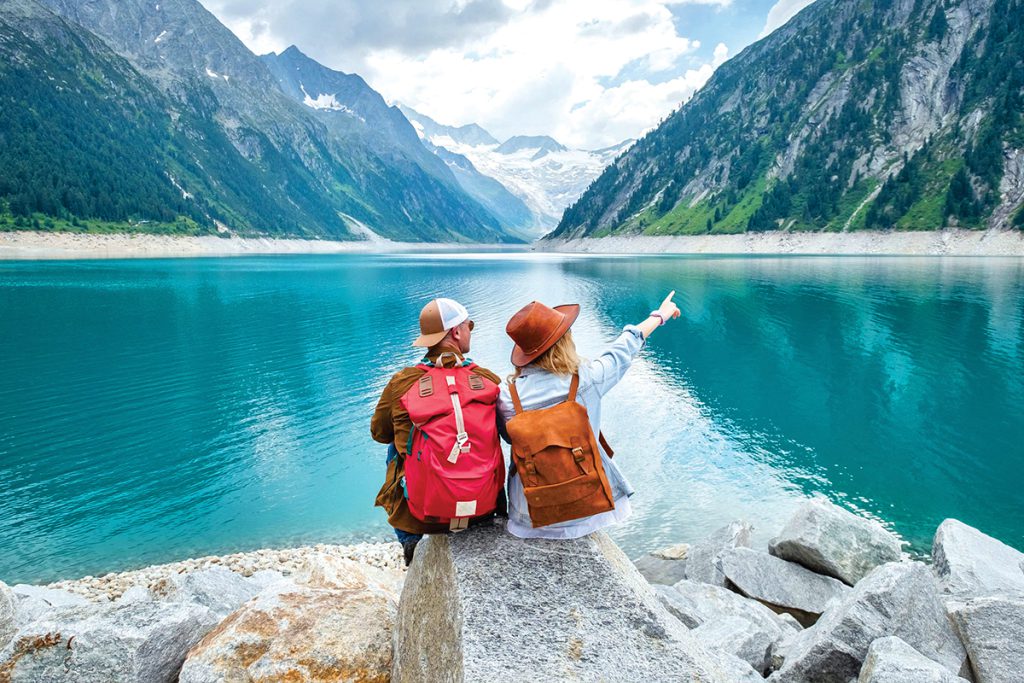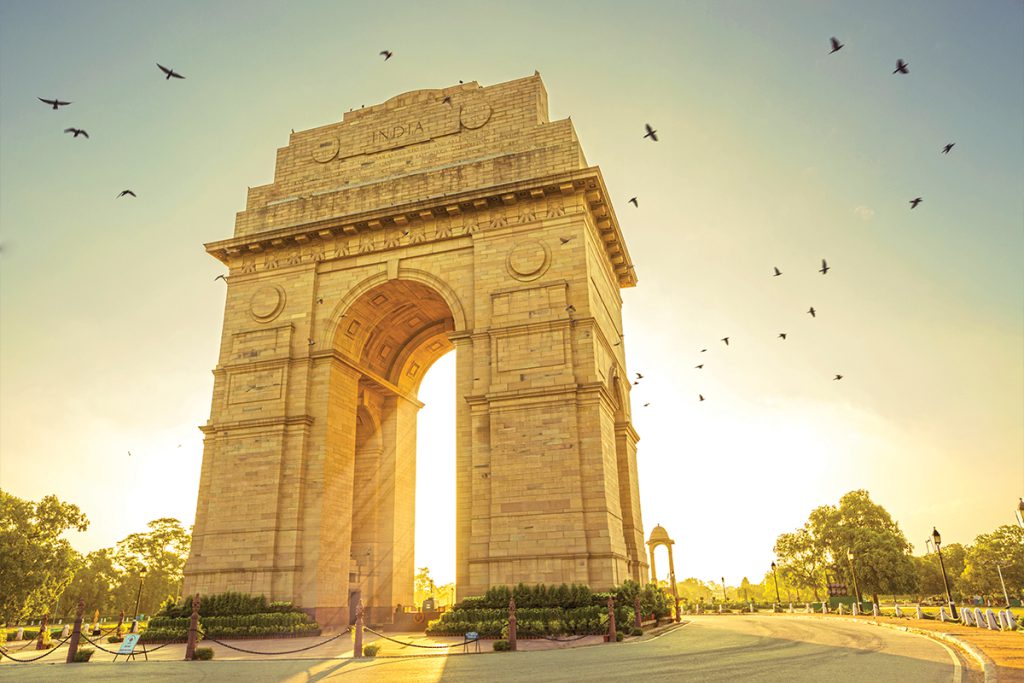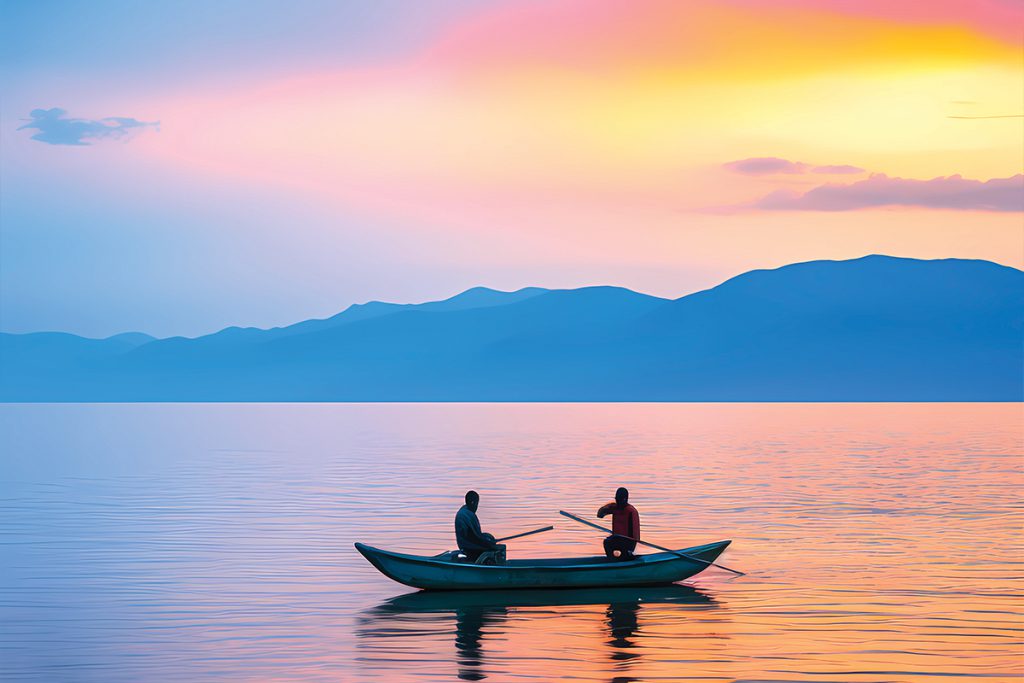From sustainable aviation initiatives to immersive virtual reality experiences, the travel industry witnessed a remarkable renaissance in 2024, pushing the boundaries further than ever before
Words by Sakshi Dhingra
The travel industry witnessed a remarkable renaissance in 2024, fuelled by groundbreaking innovations that reshaped the way we explore the world. From sustainable aviation initiatives to immersive virtual reality experiences, the boundaries of adventure were pushed further than ever before. Cutting-edge technologies seamlessly integrated with traditional modes of travel, offering personalised journeys tailored to individual preferences. As global connectivity soared, previously uncharted destinations beckoned, enticing travellers with unique cultural immersions and breathtaking natural wonders.

Thus far, the year 2024 has marked a transformative era, where wanderlust met cutting-edge ingenuity, redefining what it means to embark on an extraordinary odyssey. I chatted with Vinay Surana, Managing Director (Asia-Pacific, Middle East & Africa), Allianz Partners to better understand where this journey might take us.
As the travel industry continues to grow from strength to strength, what are some of the key emerging trends you’ve observed in terms of consumer preferences and booking patterns in India and the APAC region? And how have these trends influenced your strategies and offerings at Allianz Partners?
As the world’s largest travel insurer, our global experience of partnering with some of the largest airlines, travel agents, banks and assisting millions of travellers across multiple countries has given us unique insights into their needs and expectations. There are 6 key trends we are witnessing in the travel sector in the APAC region:

Travellers are seeking authenticity and non-traditional experiences: Aligning with the post-COVID trend of valuing experiences over goods, travellers are moving away from “typical high frequency” tourism in favour of more personally meaningful destinations and offbeat experiences – opting for immersive trips that highlight local culture. In fact, 49% of travellers globally are looking to be immersed in local cultures and products, while 50% are looking for personalised experiences and activities.
An increasing demand for wellness and self-care trips: After long periods of isolation and self-reflection, more travellers are looking to reconnect with themselves and their wellbeing more than ever. The Global Wellness Institute forecasts a 21% annual growth rate in wellness tourism between 2020-2025.

Travellers are treating themselves to luxury and adventure: Research shows that more than half (52%) of wealthy travellers now prefer to spend their money on luxury experiences rather than luxury goods.
Reconnection travel is here to stay: After long periods of separation during lockdowns, reconnecting with loved ones remains a top motivation for travel.
The rise of the Digital Nomads: As telework becomes more common, we’re seeing an increase in digital nomads – people who travel freely and work remotely from different locations across the world, seeing themselves more as temporary residents than tourists.
An increasing focus on sustainability: Travellers are increasingly seeking ways to have more meaningful and conscientious travel experiences – from searching for and booking more sustainable options, to looking for ways to improve their impact on the destinations and communities they visit.

And how have these trends influenced your strategies and offerings at Allianz Partners?
Allianz Partners has launched the ‘allyz’ mobile app, a digital platform providing travelers with trusted advice, personalized support and access to the full suite of insurance services across the entire trip life cycle (pre-trip, during the course of the trip, and post-trip). The successful launch of the mobile app in France, Germany, Netherlands, and the United States of America is an important milestone in the expansion of Allianz Partners’ digital platform strategy. This rollout of new digitally accessible services will continue across all lines of business through 2024 and beyond.
Allianz Partners understands that in today’s market, it’s not just about travel insurance, but the overall, holistic experience and peace of mind for the end-user. Introduced as a web app in 2020, allyz offers a one-stop shop for users with pre-travel advice and inspiration, as well as a convenient space to store all travel documents and access information on local services whilst travelling.

With the changing expectations of travelers, what are some of the key considerations when it comes to insurance implications and financial planning for travelers in the current landscape?
Travel providers need to understand what consumers today demand, so that they can consider adapting or expanding their offerings to cater to that. For example, airlines can give options to purchase carbon offsets, whereas hotels can offer packages for digital nomads or wellness and self-care.
For travellers, it is important to keep in mind that the destination and planned activities they decide on play a significant role in travel insurance selection. Some destinations may pose higher risks and require specialised coverage due to health concerns or political instability.
As more people embrace experiential travel and seek unique experiences, what are the potential challenges and risks that travelers may face? How can these risks be mitigated as travelers increasingly look to embark on adventurous or off-the-beaten-path journeys?
Engaging in adventure activities such as skiing, scuba diving, or hiking, or visiting remote locations may require specialised coverage, so they should consider plans that cover any potential accidents or injuries related to these. Some plans also offer valuable assistance in emergency medical evacuations which ensure travellers receive proper treatment and facilitate safe transportation back home.
To say customer loyalty is crucial in the travel industry would be an understatement. How has the evolving travel landscape impacted customer loyalty strategies, and what are some of the innovative approaches that can be taken to foster long-term customer relationships and build brand loyalty among travelers?
Travellers today expect efficient and intuitive experiences that deliver instant gratification. This immediacy has led to greater competition among travel suppliers for loyalty, prompting companies to focus on eliminating friction while still providing a human touch in travel services.

No single company can eliminate all the issues that a customer – or in this case traveller – may encounter. Partnerships in travel are key to ensuring seamless and tension-free journeys, and companies that partner with travel insurance providers to enhance customer care can differentiate themselves by offering peace of mind throughout the entire travel experience.
Our travel supplier partners see us as a gateway to address some of these concerns, anxiety, and tension. They also found that coupling travel insurance with their core product often drives better conversions of that core product – and we are seeing conversion rates at an all-time high.
Looking ahead, what do you envision as the most significant trends or disruptors that could shape the travel industry in India and the APAC region over the next 3-5 years?
The travel industry in India is poised for significant transformation, driven by several key trends and disruptors.
Air connectivity: Indian air carriers have placed historical aircraft orders, more than a thousand aircraft to be delivered over the next decade, as per a report by CAPA, which also stated that the Indian market in the post-COVID era is attracting global attention as arguably the most promising aviation market. Moreover, as per Ministry of Civil Aviation data, India’s aviation infrastructure has witnessed remarkable growth over the past decade, with the number of operational airports increasing from 74 in FY15 to 149 in FY23.
Rail and Road connectivity: Besides air connectivity, we are seeing the launch of semi and high-speed rails across India, with over 82 Vande Bharat train services operating across the Indian Railways, and a massive expansion of the roads and highways network.

These trends of expansion across different modes of transport are indicative of the country’s commitment to enhancing its connectivity both within and with the outside India, which will lead to the growth of the domestic and international tourism. Expansion in hotel rooms capacity together with strengthening of religious centres will provide further impetus to domestic travel.
These trends will also contribute heavily to increase in outbound international tourism. Additionally, recent developments such as the relaxation of visa regulations for Indian nationals by southeast Asian and Schengen countries will facilitate easier international travel.
A market disruptor can be the emergence of India as a regional aviation hub. Indians travelling across the world today largely use non-Indian carriers. Due to its location and massive increase in capacity, India and Indian carriers have the potential to develop local hubs that will have a captive market.
As a result of these market developments – capacity augmentation, ease of cross border travel, India is set to democratize travel, making it more accessible to a broader segment of the population and driving further growth in the travel industry.


